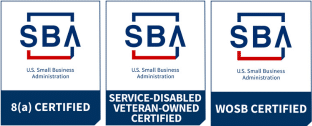What would your employees say if someone asked them what the purpose of their job was? What would you say?
If you aren’t sure where to start with this question, your business lacks a purpose-driven culture. Creating a purpose-driven culture within your organization can take your company to the next level by providing a motivational force for you and your employees.
We can identify the purpose of an organization by thinking about why the company exists outside of generating a profit; what are they doing? What is the purpose of an air conditioning mechanic at an HVAC company? The mechanic is responsible for providing a comfortable environment for the client. A warm house to live in during the winter, or a cool classroom for students and teachers.
Identifying and developing purpose amongst your employees can increase employee engagement by making them part of a greater good. Establishing a purpose-driven culture can provide greater clarity in setting goals, prioritizing initiatives, and decision making. When employees have a heightened awareness of their role in the company and their specific impacts, they develop pride in their work and are more likely to work harder.
A purpose-driven culture can also help recruitment and employee retention because identifying a purpose provides a more fulfilling career.
An easy place to start is listening to your employees; what do they feel their purpose is? Do they feel like their job has a greater purpose? Taking this initial survey can help you develop a better strategy for identifying and communicating purpose. It is essential to keep the company’s purpose realistic, authentic, and aspirational. It should be easily identifiable– something employees engage with every day, and the purpose should be at the heart of the company’s long and short-term goals. To be successful, leadership must be fully engaged and committed to communicating their employees’ role in the company’s greater purpose. This means leaders at the top and mid-level managers must internalize the business’s culture to help base employees see how their daily tasks are vital to the company’s success and impact.
Like all good things, successful implementation of a purpose-driven culture takes consistent work by always orientating conversations and decision-making around the core purpose and goals. Consistency and authenticity are required to make employees believe in the business’s purpose, which turns into believing in their own sense within the organization. Compassion and understanding of the whole person are crucial to making the purpose personal and identifiable. Workers are more likely to contribute a more significant effort if their purpose aligns with their values and sense of fulfillment.
It can be easy for business owners and upper-level leadership to lose sight of their employees as more than a means to produce labor. However, developing a purpose-driven culture forces owners and executives to see employees as normal humans with unique needs and strengths. This humanization of employees also helps further employee wellness because leadership better understands their challenges and can more effectively provide solutions. The whole-person approach to developing a purpose-driven culture provides fulfillment to employees and brings positive energy to the workplace that benefits everyone involved.
In the time of a worker shortage, making your business a place people would be happy to work is necessary. This means focusing on employee wellness, which is directly tied to a robust purpose-driven culture. If you are struggling to implement real change within your business, check out the Miner Agency’s association management consulting services to find out how our team can be an investment in your company’s wellbeing.

